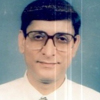Middle-class's discontent over Dalbaji or party politics could well be a factor of change in the eastern state
India's triumph in the cricket World Cup and Anna Hazare's crusade against corruption - two things that could make an epoch of the first half of this year.
But where is the Bengali bhadrolok (BB) in all this? Is the absence of the BB accidental or a culmination of the process of marginalisation of the BB?
While once the BB were known as the rare strain of home grown intellectuals, their presence in areas of excellence has been dwindling.
Infact, the bhadrolok is now a vestige of what it was once. You name a field and I will show you how hard it is to find a Bengali excelling in it.
Not that the BB has run dry of talens - there are still many talents in literature, music and culture. Bharat Ratna worthies late Suchitra Mitra, Soumitra Chattopadhaya and Joy Goswami are cases in point. But they are Bangla-oriented, lacking patronage and market, and therefore, not so significant and relevant in the context of today’s commercially oriented Hinglish-speaking India.
The reason is not far to seek. The backbone of society in Bengal has always been the ethos and values espoused and created by its bhadrolok. Their domination in every sphere from mid 19th century to mid 20th century need not be recounted. Unfortunately, the Bhadrolok character which epitomized sincerity and honesty is a rare phenomenon now. Stark consumerism and enticement of lucre, in stead, dominates modern BB psyche.
It started with the partition of the state and was fortified by the ascendancy of left front government in West Bengal. Partition loosened the economic fabrics and the social cohesion. The rulers in the state, by deliberately pursuing wrong policy of intra-social confrontation and labor militancy, hit the pedal on the state's course to its doom. They, in these 34 years, have compeltely dismantled the economic develpomen and the work-culture in the states.
Not for once, did they utilise their clout with the centre to the advantage of West Bengal.
The economy of the state, as a result, wa drained of a thriving market market and faced flight of capital and industry and consequently loss of jobs and other economic/business opportunities. Further, with the shift of language of office administration and communication from Bangla to English and Hindi, local print, publication and communication market started dwindling. So, local economy suffered more and more. The rulers could more effectively influence and destroy the local entrepreneurs because they largely employed Bangali laborers, more susceptible to revolutionary slogans. Their demise in turn removed all patronage for growth of local talent and enterprise.
Development of talent and commercial acumen was sacrificed in favor of nepotism. Party politics destroyed the work-culture. Powers in Alimuddin Street disowned merit-based evaluation as bourgeoise attributes and systematically indulged in character assassination of all social icons and the youth was left with no ideals to emulate and their sense of value got distorted. Dalbaji or party-affiliation simultaneously targeted the then venerable education system.
The struggle for survival, in a situation full of continuous assaults on all finer traits of BB, became degenerate and therefore the bhadrolok's decline and marginalisation became inevitable.
One can, however, perceive winds of change. There is now recognition and admission of all these ills. Therefore, honesty and sincerity have emerged victorious over Dalbaji. Now,efforts at reversing the trend may at long last begin. We will soon know.
[This article was written before the West Bengal assembly election results were declared.]
